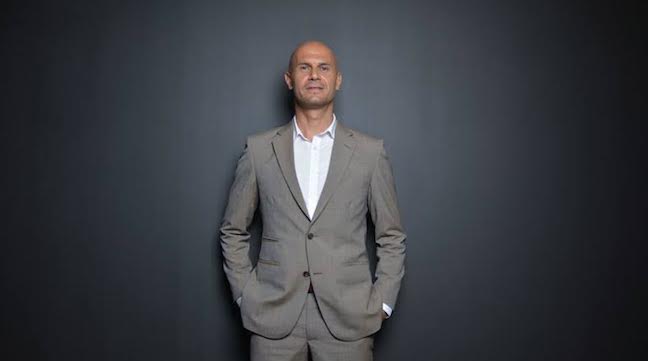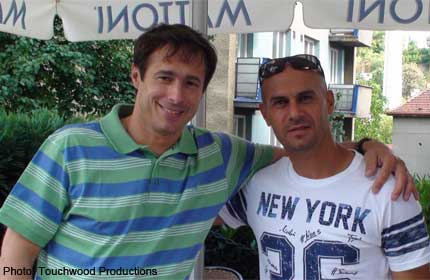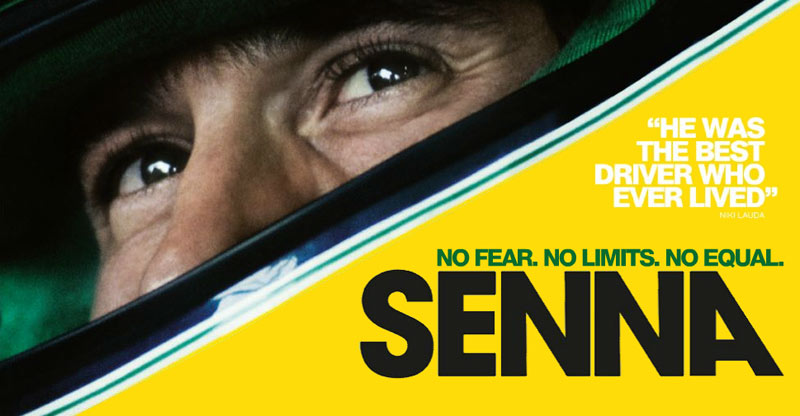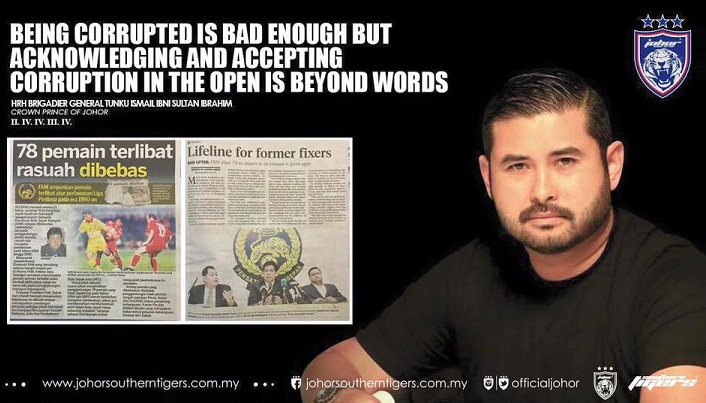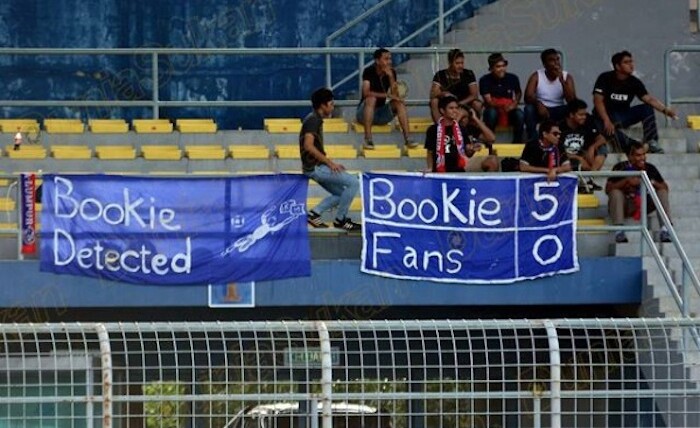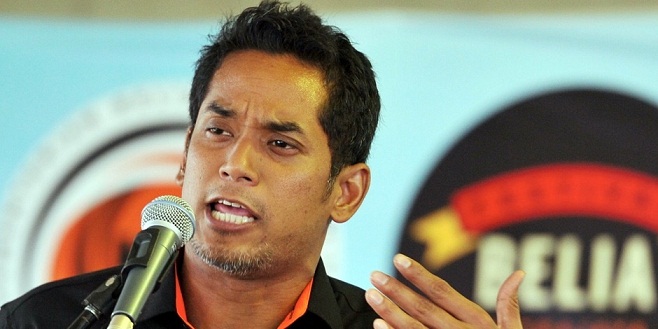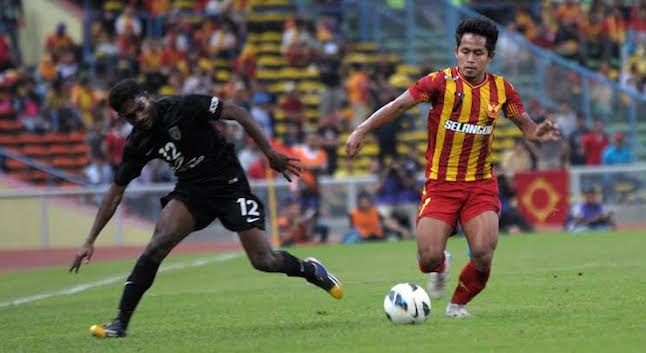17 December 1994.
The final of the Malaysia Cup between Singapore and Pahang. Over 80,000 in the Shah Alam stadium – I think it was one of the first few matches held there. I wasn’t at the stadium though. Back then you never know when a match was going to be telecast live. You have to wait and keep your fingers crossed at 8:45pm, that the match would appear on your screens. Other times, you would have to resort to listening to radio commentary. I did.
I recall watching this particular match on TV with my father. I was 12 and rarely watch matches not involving Selangor but I was glad I didn’t miss this one! A certain Abbas Saad scored a hattrick with Fandi Ahmad adding another to complete the 4-0 drubbing over Pahang. Mind you, this Pahang team boasted the likes of Zainal Abidin Hassan, Dollah Salleh and Alan Davidson.
So what was so special about this match?
It was the last big match before Malaysian football was hit by the match-fixing wave, which saw almost 100 footballers banned.
Abbas Saad was one of them – in what was probably the highest profile case at the time. At the peak of his powers, the Singapore striker was convicted of match fixing and was handed a life ban!
It was also the last local football match I remember watching on TV. For a long long time.
Well, fast forward 20 years. I was watching the final cut of a documentary titled: The Turning Point of the Game – The Abbas Saad story. I was making technical notes on my phone about certain editorial points in the video – as we are in talks to have it broadcasted on Malaysian TV very soon. It was over an hour long, and my battery died just before the end. The producers of this documentary were flying in from Australia and I was to meet them the following day.
Well, if you don’t know about the whole episode with Abbas in 1995, maybe this is a good time to Google. Without giving away too much, this documentary revisits the glory days of Abbas’ playing career, how the match-fixing scandal affected his life and the Malaysian/Singaporean football landscape, but more importantly – centers around his fight to heal his tarnished public image. Yes, FIFA lifted his ban. The Football Association of Singapore lifted his ban (only 5 years ago in 2009). But the damage was already done. And some things are almost impossible to undo. Perception.
The climax of the documentary is Abbas going to Prague to find his then teammate Michal Vana, who famously fled the country during his trial for match fixing. Many point the finger at the Czech striker who was facing 6 charges of corruption, as the reason why Abbas was on the receiving end of the ban.
For the last 4 years I have been working closely with Abbas – who is a football analyst on Astro SuperSport. I’ve heard and seen so many remarks about Abbas’ reputation from his peers and viewers. When monitoring social media about our programs, you will come across many comments that will involve ‘name calling’, people making reference to Abbas as a match fixer, and that he doesn’t deserve to be on TV. Even today. Of course, there are good ones too. Sure, everyone is entitled to their own opinion. There was once when I came across a prominent coach who declined our offer because they refuse to be seen on TV alongside Abbas – afraid of the negative association it may trigger.
For anyone who has had the opportunity to have a conversation with Abbas, you will know that he is a very opinionated. And when he talks about something he feels strongly about – it shows in his face. Hearing Abbas relive the whole episode was painful. Here is a man who was sharing some of his most personal emotions, and details of certain incidents that only he could have known (or seen). There was frustration. A lot of it. And most of all, he was hurt. And you get that too with Michal Vana, in his interview.
Now I don’t mean to digress, but something I learnt in university comes to mind. When we had Documentary class, the lecturer discussed the concept of truth and how documentaries automatically assumed this role – how the voice overs function as a kind of a ‘truth dispenser’. The tone of conventional documentaries normally ‘forces’ the viewer to make the truth of the story, their truth. Powerful stuff. Coincidentally I’ve watched 2 documentaries recently – Senna and Class of 92. The latter being more of ‘feel good window’, so perhaps not a good example for this illustration. Senna was a superb documentary, technically and editorially.
It was essentially a compilation of archive footage – of Brazilian F1 legend Aryton Senna, with special attention to his frosty relationship with Alain Prost. Now you may think that archive footage doesn’t lie but after the release of the documentary, Prost accused the producers of painting a negative light on his relationship with Senna – that the choice of footage used portrayed Prost to be sort of a ‘villain’ in the documentary.
So while there is no manipulation in the footage, the truth conveyed in the documentary was A truth, but not THE truth. Because let’s face it, there is NO universal truth – every story is told through someone’s perspective.
Which brings me back to the Abbas Saad story. You will see many ‘truths’ in this documentary. Abbas’ truth, Vana’s truth, and the filmmaker’s truth – which are all versions of the truth. One of the reasons for this is censorship. Not the kind you hear about. This is self censorship. The producers of this documentary are forced to ‘tone down’ some of the content because – well you know why. There a very strong sense of fear in Malaysian football – former players and coaches are very reluctant to talk about controversial issues. Off camera, you hear so many stories, but once the camera begins rolling, everything is fine and dandy. Fascinating.
So if you get a chance to watch this documentary, try and watch it with an open mind and while you search for YOUR truth, ponder on these 2 questions: who might want to protect the truth from being exposed? Who stands to gain by exposing the truth?
I see you giving me that look – yes, you and I know it, but even after 20 years, there’s a very slim chance of the truth ever surfacing.
Other posts by Nicholas Andrew John

